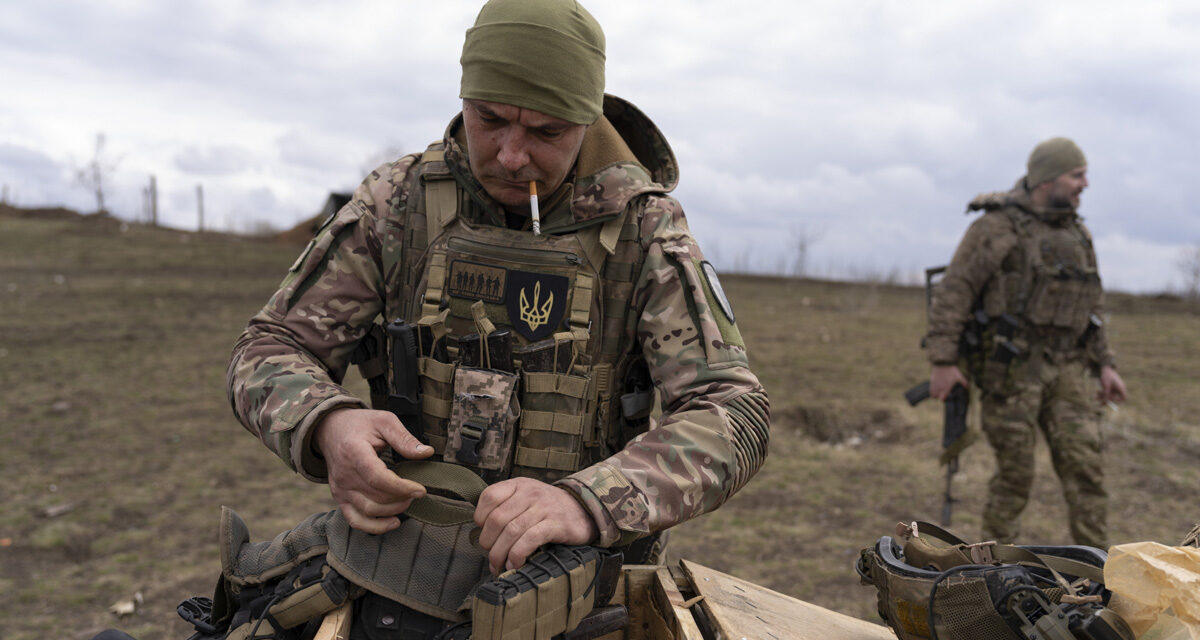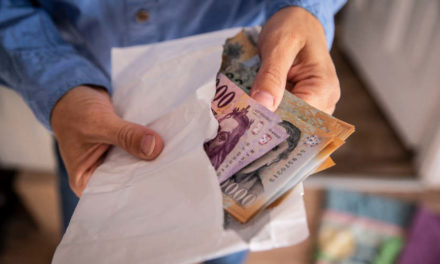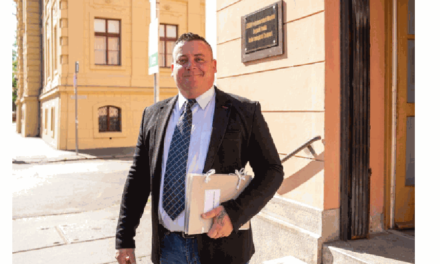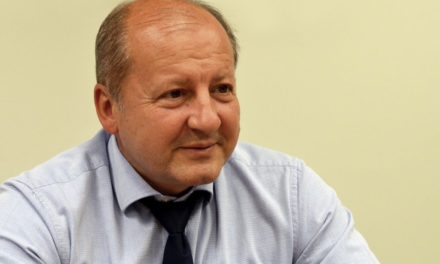There is only one possible reason why Kiev sent troops across the Russian border: to gain a better position in an upcoming peace negotiation. The plan: everyone gives back to the other what they took. However, to do this, the territory must first be held. Second: there is Putin…
The image of the war in Ukraine changed in a few days, when Ukrainian troops crossed the border, both literally and figuratively, and, penetrating more than ten kilometers into the Kursk province, on the other side of the Russian border, took control of the territory in a strip of about forty kilometers, including nearly thirty settlement. This action is extremely important not only because it was the first major success of the Ukrainian army since the counterattacks in 2022, but also because it was the first time since the Second World War that enemy soldiers set foot on Russian soil. Moreover, they did this in the Kursk region, where one of the largest tank battles in history took place in 1943, and where the Soviets stopped Hitler's armies, thus once and for all reversing the balance of power on the Eastern Front.
Kursk is not simply a Russian territory. A symbol, an almost sacred place, it is one of the unquestionable symbols of Russian military dominance.
The fact that a small number of Ukrainian troops occupied such a large area in Russia so quickly may have surprised even the leadership in Kyiv, not to mention Western strategists and analysts, who after the initial raising of the hat almost as one asked the question: what now?
Some say the Ukrainians have just given the most snappy response to Washington, where Biden has kept talking about the potential escalation of the war and crossing red lines.
If there is a red line in this conflict, it is obviously the specific attack on Russian territory - moreover, not with drones, missiles or artillery attacks launched from the border, but specifically with ground forces.
The fear of escalation even led the White House to not at all - or only to delay - sending weapons to the Ukrainians that they could use to attack territories inside Russia. Since the Ukrainians have just launched a ground attack on Russian soil with (more conventional) Western weapons, it can be assumed that one of the goals of the offensive to send a strong message to the West: "there really are no red lines" . Of course, this cannot yet be said with complete certainty: Putin has promised retaliation, but he has not yet disclosed details about its nature. It is conceivable that the red line will become even redder,
however, the primary task of the Russian army now is to expel the Ukrainian soldiers from its country - everything else can only come after that.
Riding on success
The Russian authorities have so far evacuated around 140,000 people from the affected and surrounding areas. Precaution doesn't hurt just because at the moment it is not clear what the next step of the Ukrainian military leadership will be: does it want to keep the territories it has occupied so far, or does it want to go further and try to acquire new settlements? In fact, none of the options seem feasible from a military point of view in the long term: the Ukrainian army, which is already struggling with a severe lack of manpower, is not prepared for a war of conquest not only in terms of personnel, but also in terms of weaponry, so they cannot think of a long-term arrangement either. The "patriotic war" that Putin has been vocal about since the beginning of the conflict has taken a concrete form since the attack, and nothing is holding the Russian president back from taking drastic measures accordingly, whether it is mobilization or the highest level of readiness of nuclear weapons -
the use of the latter is permissible according to Russian military strategy if another state threatens Russia's territorial sovereignty. This is exactly what is happening now.
If the goal of the Kiev leadership was to force the Russians to redeploy troops with the attack, that is, they expected the transfer of Russian soldiers and weapons from the Donbas areas to the Kursk region, they had to be disappointed. Small-scale troop movements can be detected, but there is no mention of the Russians withdrawing their men from Ukrainian territory to strengthen the Kursk defense. The situation will be resolved by deploying the internal reserves, and it will be bloody: due to the small number of Ukrainian forces, the severely limited resources of the army and logistical shortcomings, despite the increase in combat morale, we can see an action doomed to failure (militarily), only effective in the short term.
Land auction at the peace talks
It seems most likely that Kiev is currently acquiring the strongest trump card it can use for the inevitable cease-fire and peace negotiations. In recent months, Zelensky has indicated several times that he now wants to see the Russians at the negotiating table - it is another matter that the Kremlin, which also does not shy away from negotiation processes taking place on its own terms (that is, involving the acquisition of territory), does not even want to hear about the Ukrainian "peace plan ”, which begins and ends with all Russian soldiers leaving the territories occupied so far, including Crimea.
However, the conditions changed with the Ukrainian attack. Until now, the peacemaking narrative was dominated by Putin. His plan was clear: the eastern regions where the Russian troops had already set foot would be handed over to Russia by Ukraine, and the war would be over. A classic territorial acquisition tactic that ties the end of the conflict to the establishment of new borders. However, the current situation may change the rules of the game.
The Kiev leadership can propose a simple exchange at the negotiating table: both sides withdraw from the other's territory, thus ending the war.
The theory is confirmed by Zelenskiy's interview a few weeks ago, in which he specifically talked about the fact that territory can be regained not only by brute force, but also by diplomatic means. His vague sentences at the time gained some meaning with the current attack: theoretically, mutual withdrawal could indeed be a prerequisite for a peace treaty, but the results of the current mini-offensive are not yet strong enough for Putin to think seriously about the matter even for a moment, and in fact it may achieve the exact opposite in its effects. The Russian leader will probably insist: he has no intention of sitting down at the negotiating table, and he will regain the occupied territories with the toughest possible military methods, not by kneeling on a white tablecloth.
Zelensky took a huge gamble with the attack, but from this point of view it can be seen as a last desperate act to get the Russians involved in the negotiations. There is not much else he can do: Ukraine has not achieved anything at the peace conferences so far. His goal was primarily to convince the states of the Global South to condemn and start sanctioning Moscow - but more importantly to persuade Beijing to use its influence over Putin and force him to sign a peace deal (on Ukrainian terms, of course) .
Both plans failed: the countries of the Global South had no intention of severing their political and economic relations with Russia, and China complained before all peace negotiations (only one participated, the others did not see the point) that the Russian side was not invited to the for conferences. The situation became so heated that Zelensky almost called Xi Jinping a Putin-Pinchin, to which China calmly replied: it is not necessarily the countries that participate in a peace conference that want peace, otherwise it will stick to its position, that is, until Russia is treated as an equal as a partner in this kind of conference, Beijing stays away from the events.
The longer the matter drags on, the more it looks as if Kiev is the hub of real, concrete peace negotiations.
There is also significant concern over the slowdown in Western arms shipments and the shrinking size of aid packages. Europe is starting to noticeably run out of weapons, and its own threats, with a NATO-Russia war, are pushing it to start boosting its own defense capabilities instead of Ukraine's. Overseas, the problem is Donald Trump, who has repeatedly stated that the war in Ukraine must end immediately, and that the United States must stop its usual "endless war" attitude and weapons shipments to Kiev. Even if Trump is not elected president, Kamala Harris will not be able to do anything with a congressional Republican majority, which, as we have seen, was able to block aid to Ukraine for half a year.
At the same time, Western public opinion is getting more and more visible, and Ukrainians are getting more and more desperate for the war.
Among the latter, those advocating peace are now clearly in the majority, but the proportion of those advocating this even in the face of Ukrainian territorial losses is also increasing.
The strengthening of the Putin narrative
Both external and internal pressure weigh heavily on the Kyiv leadership: Zelensky and his staff, in a losing situation, accepted the impossible and launched a physical attack on Russia. There can be only one logical reason for the move: if they hope that it will give them an advantage in a peace negotiation, that is, they try to keep the occupied territories until it starts to function as a base of exchange. However, two conditions must be met for this: on the one hand, the next peace summit must already be the opening of a concrete process, and on the other hand, Putin must show a willingness to dialogue.
However, attacking Russia is not exactly the argument that the Russian president bows his head to and will immediately want to negotiate. Not to mention that
the narrative of "Moscow started an aggressive war against Ukraine" that appears sporadically will cease from here on in Russian society.
Russian citizens died during the attack by the Ukrainians, so Putin's speeches about the war of national defense and the parallels of his thoughts with the Second World War and "Nazism" will mostly go unchallenged. If anyone envisions an erosion of power and the fall of Putin as a result of the Ukrainian attack, they will be disappointed. The Russians will do exactly what they have always done throughout history: they will close and demand the destruction of the now real, physically present enemy. Without and instead of any dialogue.
Featured Image: Soldiers of the 72nd Ukrainian Mechanized Brigade practice near the frontline in eastern Ukraine's Donetsk region on March 18, 2024, during Russia's war against Ukraine. MTI/EPA/Olga Kovalova













